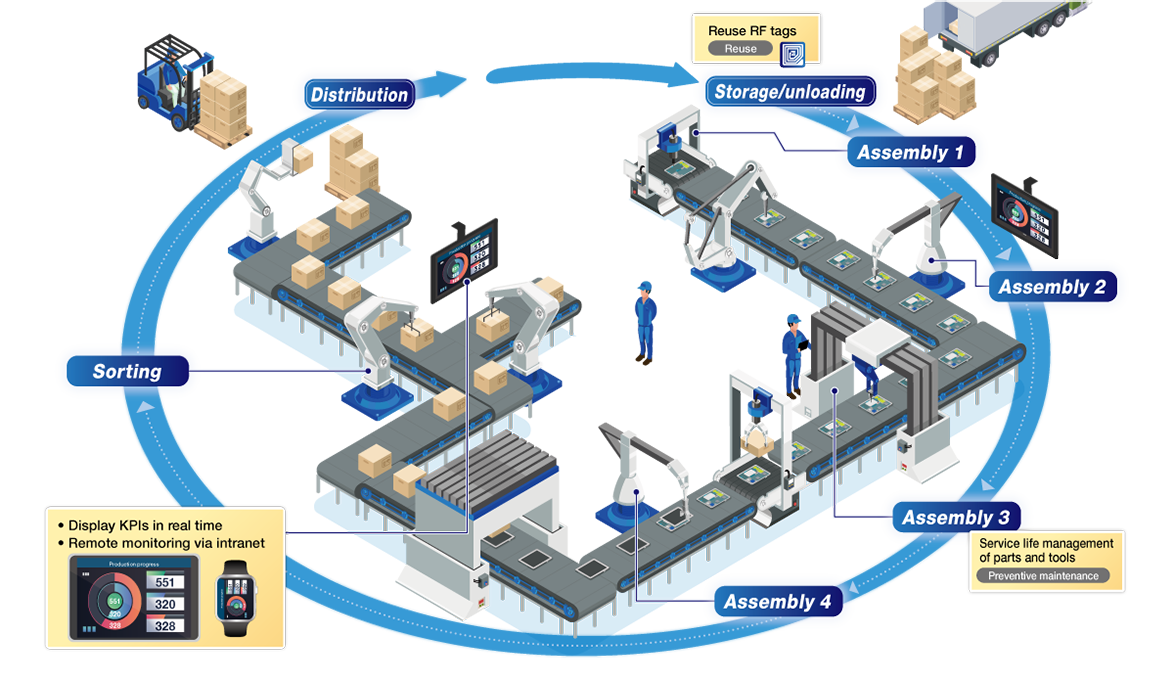RFID (RFID interface module)
- Mitsubishi Electric programmable controller can be easily connected with the OMRON RFID system V680 series using the RFID interface module. RFID system enables users to manage the production history and visualize the production status at production sites.
Efficient management and visualization
-
- Comprehensive management of product information
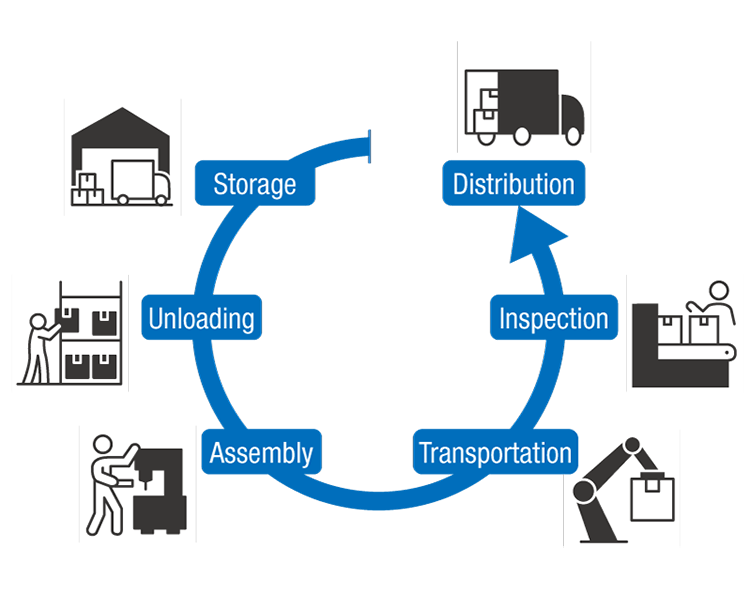
- ・Traceability without consulting with other departments
・Reduced work hours - With comprehensive management of production information history from parts storage to product shipment, it is possible to trace product information quickly and efficiently.
-
- Production status monitoring in real time
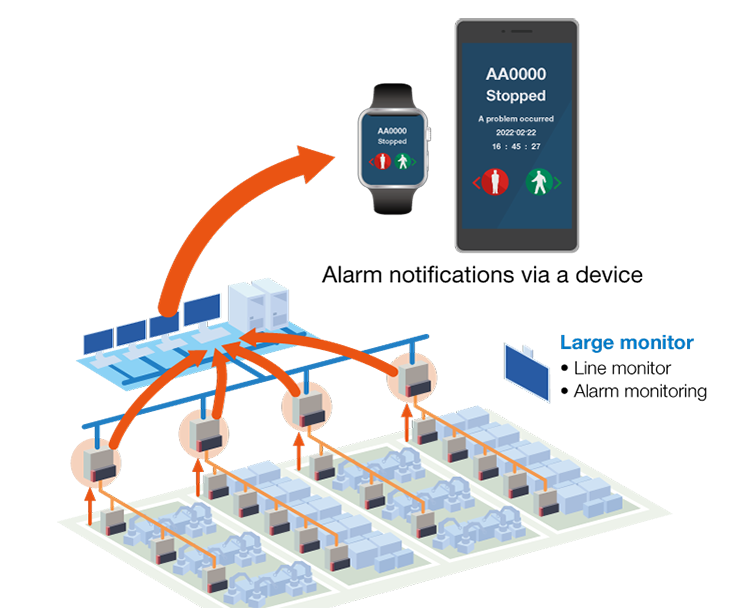
- Easily check the production site on a tablet.
There is no need to setup a computer - By displaying the production site in real time using the data from RF tags, human resources can be allocated to more useful tasks.
The production site can be checked in real time on a tablet or computer from a remote location.
- Production status monitoring in real time
-
- Using RFID system in the right place
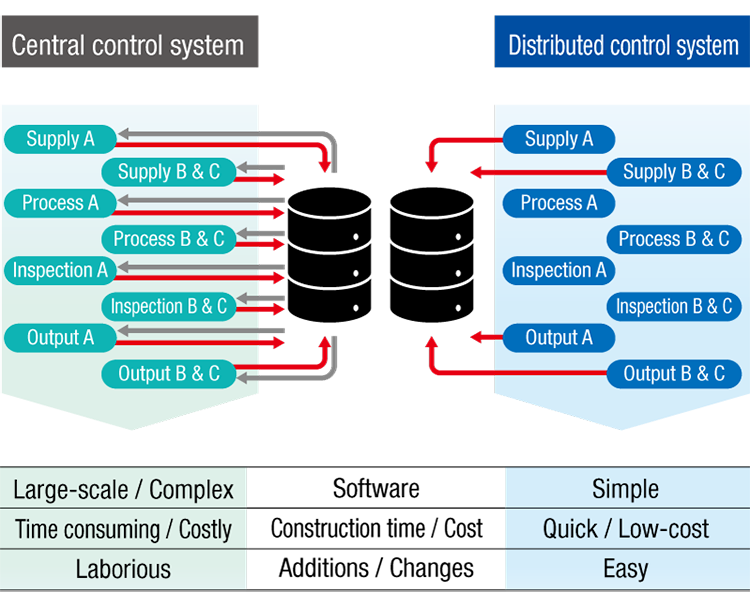
- ・A low-cost, quick to implement, simple system
・Easy to expand or change after implementation - Instead of using complex and large-scale systems that collect data for each process, it is possible to create a simple distributed control system at little cost by integrating products with data to minimize data collection.
- Using RFID system in the right place
-
- Preventive maintenance by managing the number of uses
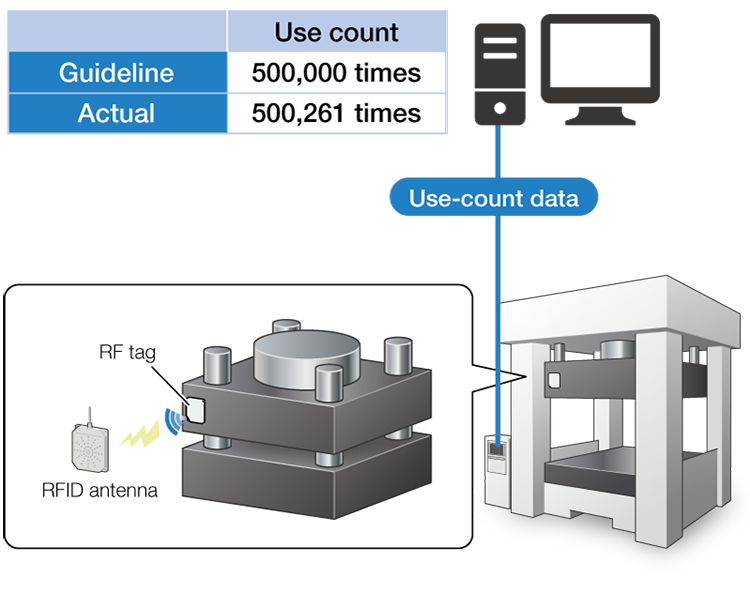
- ・Stable operation = Stable production
・Prepare for unforeseen incidents and secure manpower - Preventive maintenance is supported by managing consumable part use count with RFID and replacing parts before the production line stops.
- Preventive maintenance by managing the number of uses
Connection with the OMRON RFID system V680 series
The lineup includes the slot-in type for the MELSEC iQ-R/Q series manufactured by Mitsubishi Electric and the CC-Link IE Field/CC-Link-compatible network distribution type. Devices can be selected according to the site.
Easy system start-up
The MELSEC iQ-R series-compatible slot-in type module has the three features that utilize the features of the MELSEC iQ-R series programmable controller, enabling initial settings on the graphical user interface.
If the MELSEC-Q series-compatible slot-in type module (EQ-V680D1 or EQ-V680D2) is currently used, it can be easily replaced with the MELSEC iQ-R series-compatible slot-in type module (ER-1V680D1 or ER-1V680D2) because the same program can be applied.
For other models, programs can be easily created using the FB (function block) libraries for Mitsubishi Electric MELSOFT, programmable controller engineering software.
They can be downloaded on MEEFAN site or Mitsubishi Electric FA site.
Three new features
-
- Initial setting on GUI
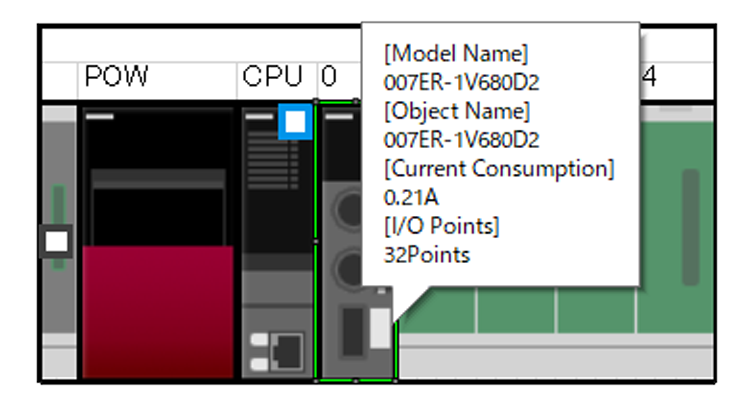
- • Graphically configurable initial setting
• Module assignments by dragging and dropping
-
- Module label

- • Supporting label programming
• Enabling device selection from lists
• Auto-tracking of module assignments
-
- Event history
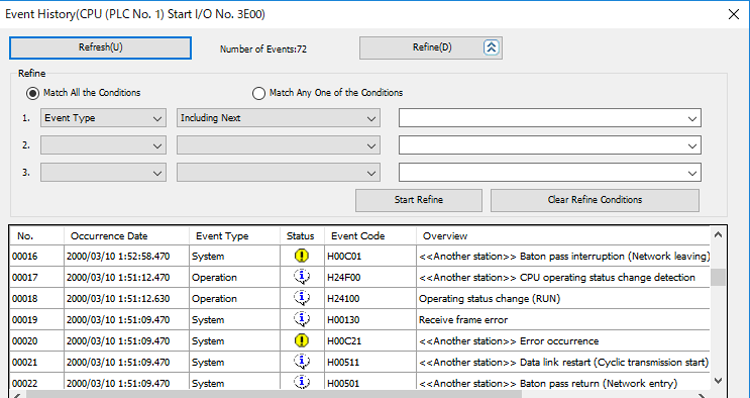
- • Managing CPU module event history
• Displaying error occurrence, causes, and corrective actions
-
Applying the same program
-
- Using an existing system
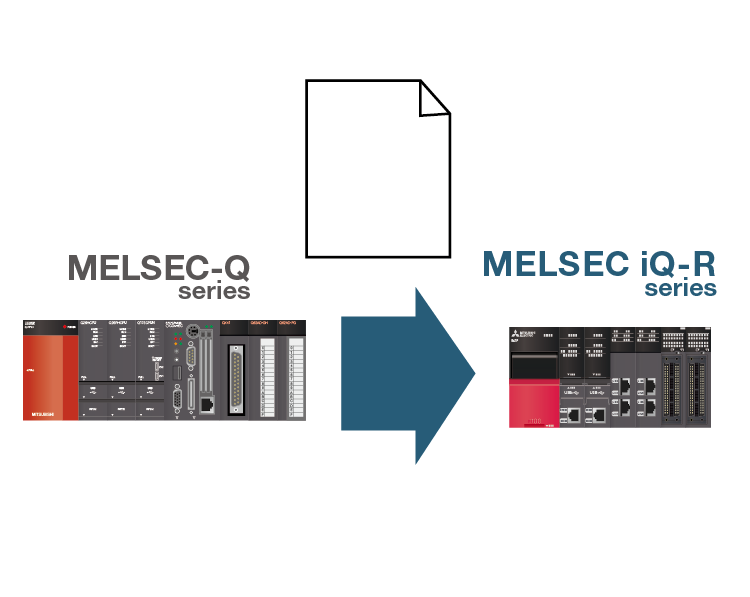
- • Program for the MELSEC-Q series-compatible slot-in type module can be applied to the MELSEC iQ-R series-compatible slot-in type module.
-
FBs (function block) for easier program creation
By downloading the FB (function block) libraries for Mitsubishi Electric MELSOFT, programmable controller engineering software, on MEEFAN site or Mitsubishi Electric FA site, programs can be easily created.
Click here for more information
Data read time and write time
A wealth of test and measurement functions
Diagnosis, such as "communication test" and "noise level measurement", between the antenna and an RF tag can be performed during start-up and maintenance.
-
- Communication test
- This function reads data from an RF tag without running a program.
If an error occurs while the data is read from the RF tag, this function shows whether the error is caused by the program, antenna, or RF tag.
-
- Speed level measuring
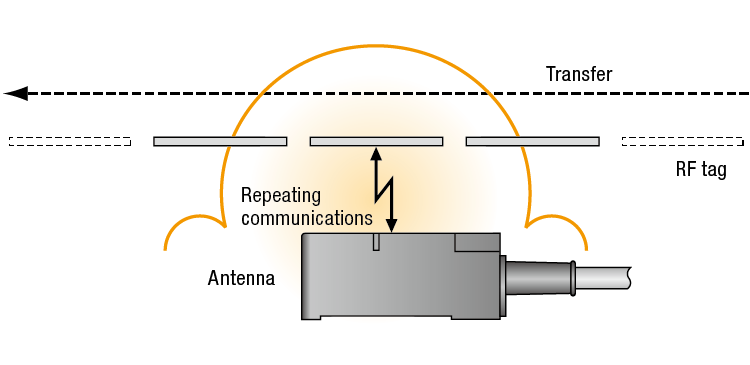
- This function measures the number of times that an RF tag can communicate continuously while it is moving. Measurement results are shown with 0 to 99 (times).
-
- Distance level
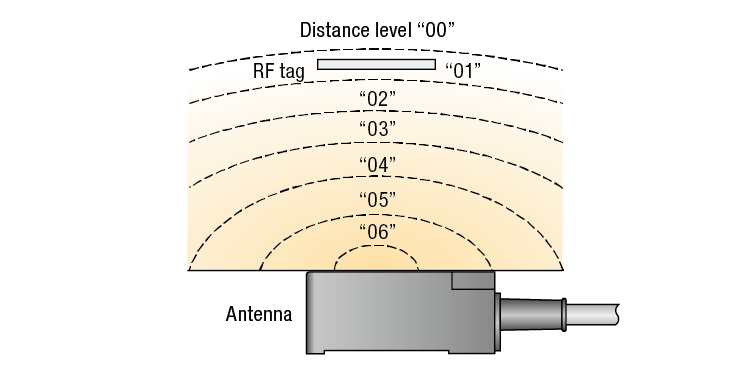
- This function measures distance (level) at which an RF tag is present in the antenna communication area. Measurement results are shown with seven levels, 00 to 06.
-
- Noise level measurement
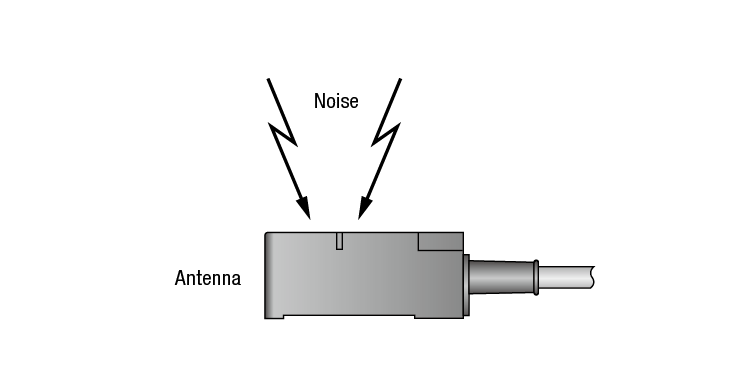
- This function measures a noise level around an antenna.
Measurement results are shown with 0 to 99. (Regard them as a guide value.)
The measurement results show current noise levels at antenna installation sites. This function allows users to monitor any changes in noise reduction measures for the occurrence of an RF tag communication error. Noise levels measured do not guarantee the communication performance.
-
- Communication success rate
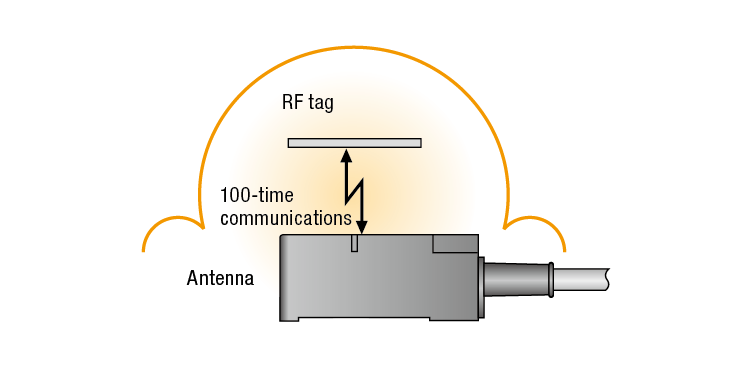
- This function calculates the communication success rate that communications are performed 100 times with an RF tag stationary.
Measurement results are shown with 0 to 100%.
-
Function list
Selection chart
Slot-in type
Network distributed type
Combination chart: OMRON RFID system V680 series, amplifier, antenna, and RF tag
FB library list
Model list
RFID interface module
| Model | Type | No. of channel connections | |
|---|---|---|---|
| ER-1V680D1 | MELSEC iQ-R series slot-in type | One-channel connection | |
| ER-1V680D2 | Two-channel connection | ||
| EQ-V680D1 | MELSEC-Q series slot-in type | One-channel connection | |
| EQ-V680D2 | Two-channel connection | ||
| ECLEF-V680D2 | CC-Link IE Field-compatible network distributed type | Two-channel connection | |
| ECL2-V680D1 | CC-Link-compatible network distributed type | One-channel connection | |
